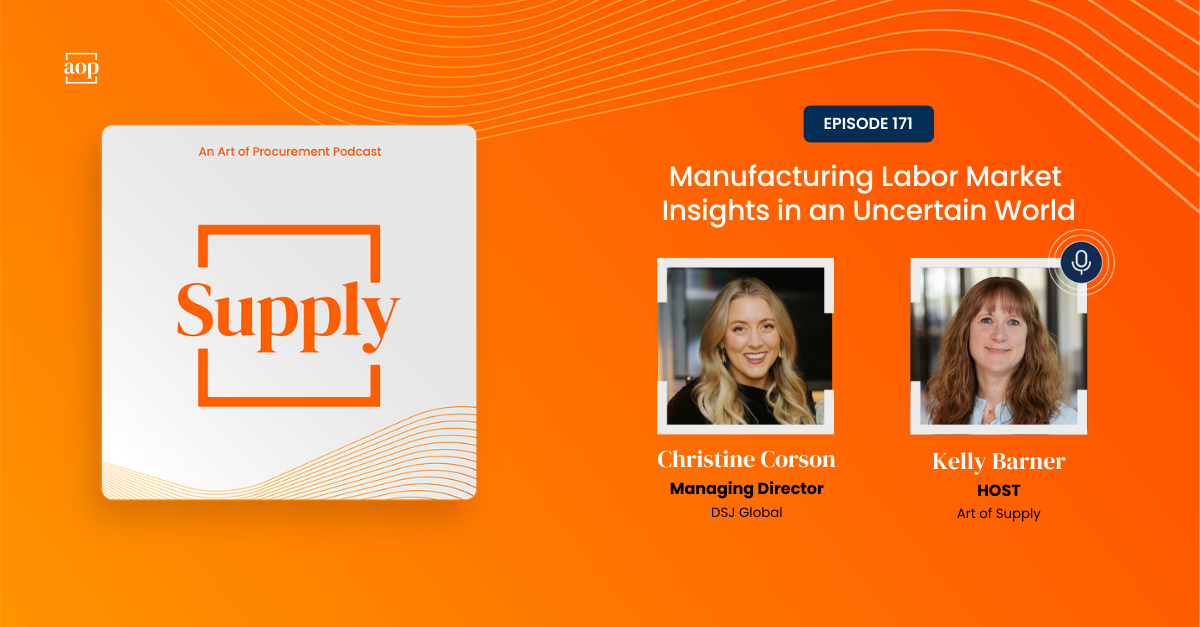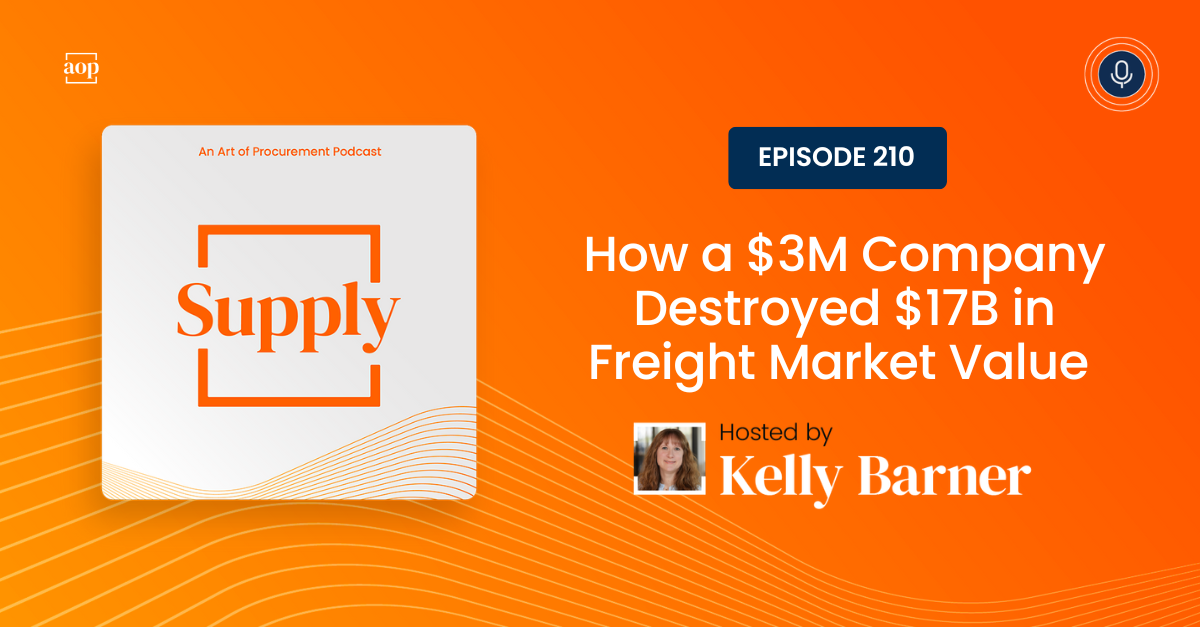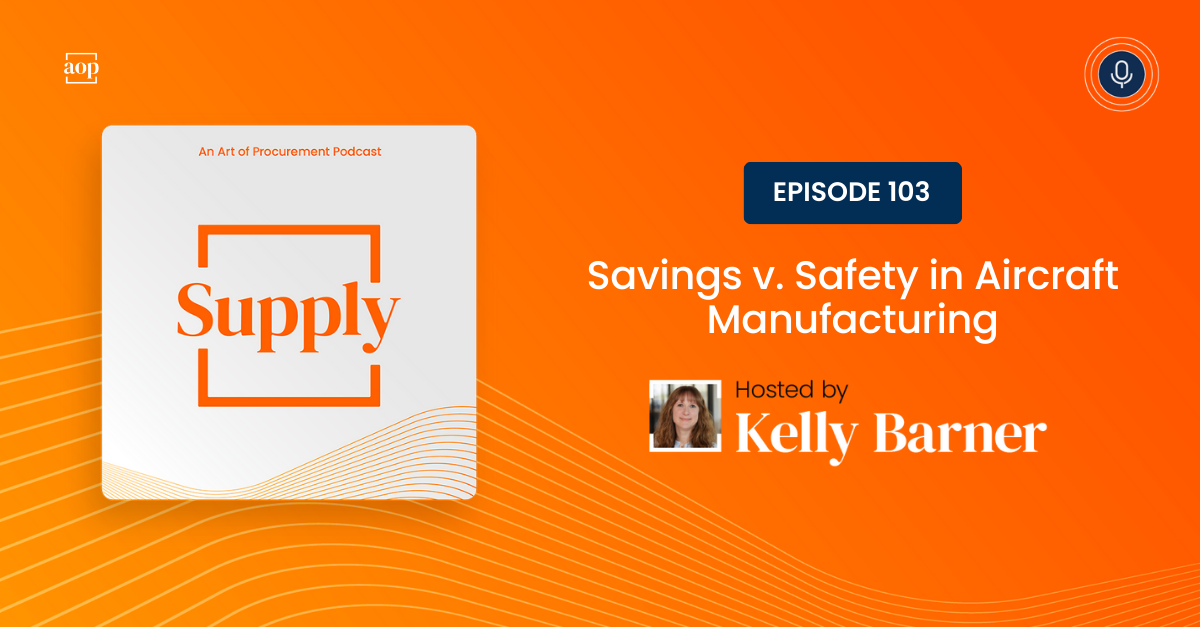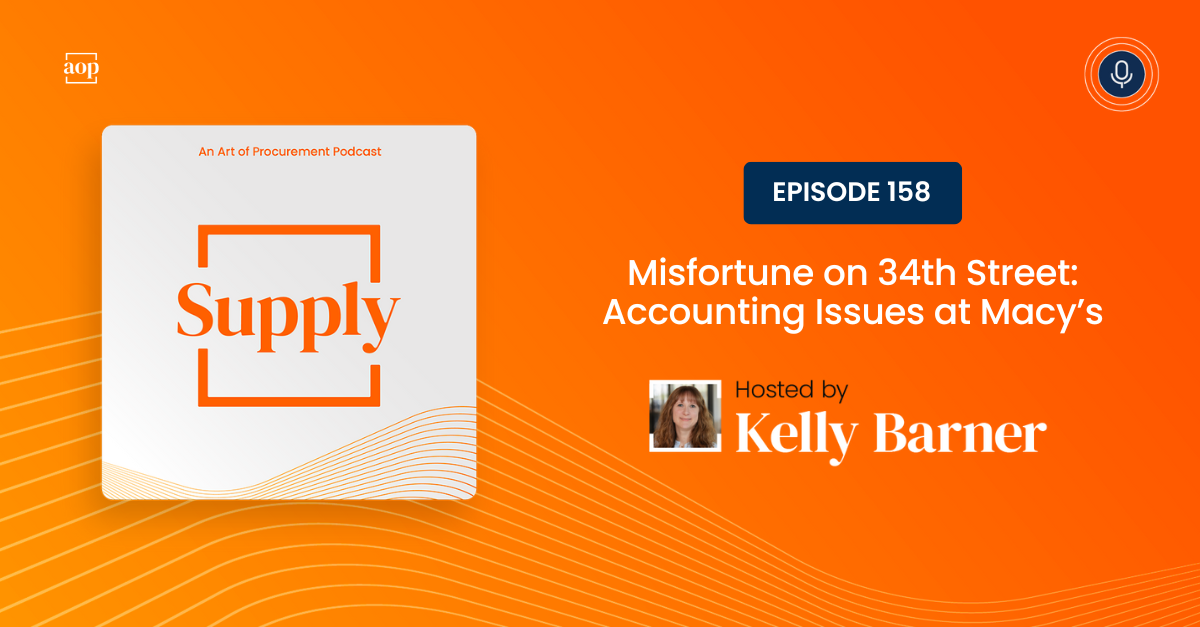
When experts comment on the economy, they often leverage consumer spending as an indicator of confidence and outlook– how do individuals and families see the broader economy, and do they think it will be profitable for them?
The same kind of thinking can be applied to companies and hiring managers. Are they confident that they can keep people employed in uncertain times? What skills are they most eager to invest their limited dollars in?
In this Art of Supply interview, I speak with Christine Corson, Managing Director of Supply Chain, Manufacturing, and Engineering Recruitment at DSJ Global. She is focused on manufacturing labor at the management level in a way that allows her to form her own opinion of industry outlook, confidence, and planning horizon.
Today’s Market Demand is Highly Conditional
In looking at the labor market within manufacturing, Christine stressed that it's currently dynamic and heavily dependent on a company's size, industry, and leadership mindset.
While she admits it is “too soon to assign an official state of things to anything because everything is changing so quickly,” Christine has noticed the highest demand for talent in more heavily-regulated industries like food and beverage, chemicals, and packaging. From her experience, hiring rates are also staying steady in other spaces like parts and components and aerospace manufacturing.
She also offered a hopeful perspective to quell potential uneasiness about the market: “There are more companies that are either moving forward with business as usual or creating new positions versus companies that are eliminating positions or putting a freeze on hiring."
Tariff-Induced Chaos isn’t as Prevalent
Given the re-emergence of tariffs and global trade uncertainty, I was curious how, if at all, these factors were affecting hiring. Christine said it's still early, but she is already seeing changes, noting that companies are now spending significant time on strategy and scenario planning.
Supply chains are no longer simply about cost and quality. They're becoming more holistic, accounting for pre-tariff concerns like sustainability, geopolitical risk, and transformation initiatives. This has created a positive opportunity for cross-functional collaboration. “Procurement and supply chain are not working so siloed anymore. Everyone is in on the conversation as it relates to the supply chain, finance, manufacturing, supply chain, legal–everyone is all working together there,” said Christine.
However, this also means teams are stretched thin–and recruiters like Christine are noticing the difference. “So much of the supply chain team's time is being spent on strategy that I think there are maybe some holes that are starting to develop in terms of the other elements of the role that they just don't have the time or the energy to get to,” she warned.
Even so, she noted that her firm saw their highest volume of new searches in recent months, offering a strong indication that, even amid unpredictability, companies are still surging forward and building out teams.
Manufacturing Firms are Looking for Well-Rounded Candidates
Although much of our conversation focused on the current state of manufacturing hiring, I wanted to get Christine's advice for candidates aiming to land mid-to-high level roles. Her first piece of advice emphasized the importance of global experience and transformation skills. “Even if you are a U.S.-based manufacturer, it is very likely that your suppliers are not,” she offered.
She also highlighted the growing demand for candidates with diverse professional backgrounds, saying that a purely traditional background and supply chain is no longer enough. “[Many firms] are looking for individuals whose backgrounds go beyond just sourcing or procurement, she said. “Candidates with legal backgrounds, candidates with backgrounds in customs, candidates with backgrounds in compliance–all of these other things come together to make [not necessarily a] better rounded, but a really desirable procurement professional for the time that we're in.”
Lastly, she pointed out a trend that prioritized a person's soft skills, saying “The one consistent thing that I hear when I talk to every supply chain leader is they need somebody whose soft skills are even stronger than their technical skills.” Hiring teams are looking for someone who has a strategic mindset, is more agile, and who's a little bit more of a utility player.
With all of this in mind, Christine offered a few pieces of wisdom for those exploring the manufacturing job market.
- Invest in Your Network: Continuously build relationships and find mentors to go to for coaching and advice.
- Document Your Experiences: Create a resume that demonstrates the types of projects you worked on that speak to new hiring priorities, such as transformations or adopting new skill sets.
- Sell Yourself: Develop storytelling skills to be able to clearly and impactfully narrate your experiences and skills.
As we closed out our conversation, Christine left us with a final piece of encouragement: “Procurement and supply chain has never had a bigger stage than I think that we do right now as far as justifying the importance of investment in those teams.”
Links:
- Christine Corson on LinkedIn
- USA Supply Chain Talent Report 2025: Hiring, Careers & Compensation
- Kelly Barner on LinkedIn
- Art of Supply LinkedIn newsletter
- Art of Supply on AOP
- Subscribe to This Week in Procurement




